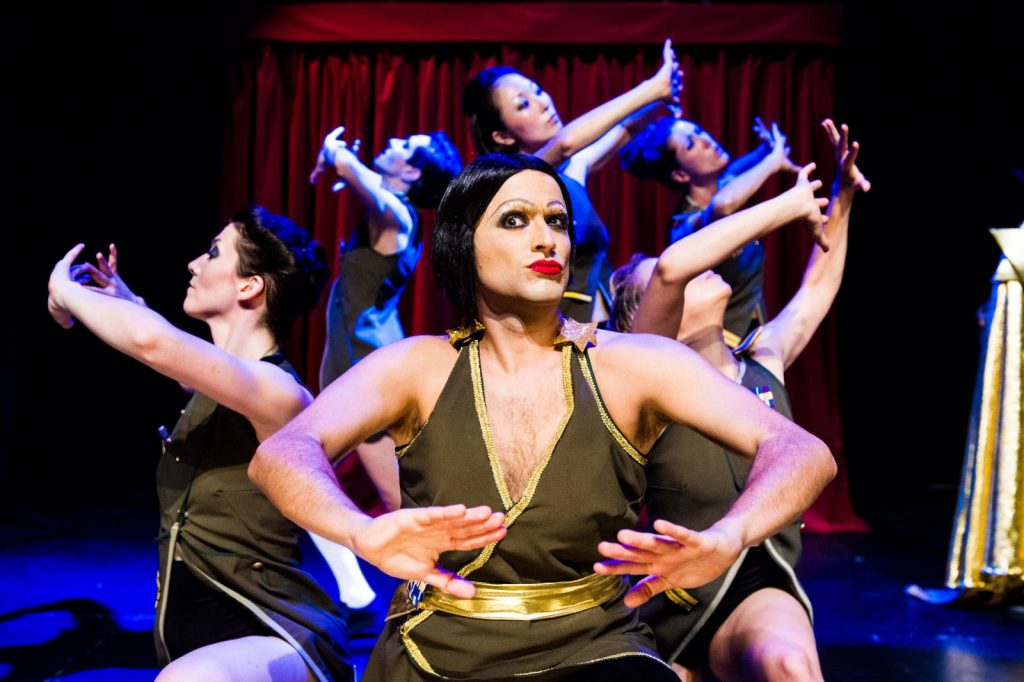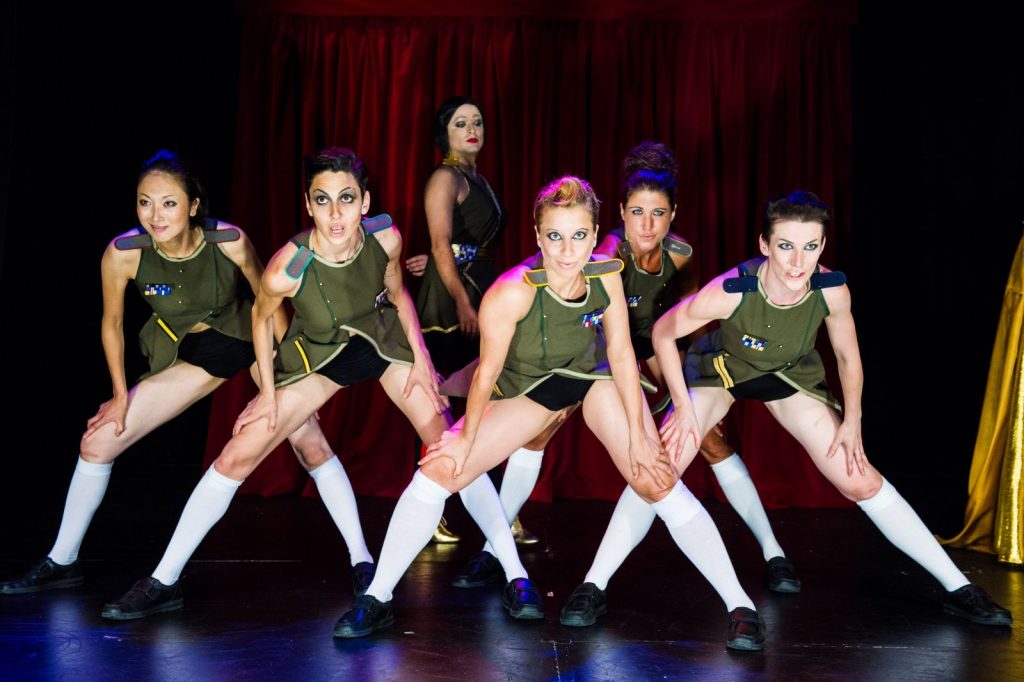Theatre Ad Infinitum’s new work Ballad of the Burning Star was a huge success at EdFringe 2013, and toured to The North Wall on 13 – 14 February 2014. Co-Artistic Director, Israeli-born Nir Paldi, is writer, director and co-performer of the company’s first politically themed, acerbically funny piece of work.
Armed with music, killer heels and a lethal troop of divas, an enraged Israeli executes a story of victimhood, persecution, aggression and love. With shrapnel-sharp voices and moves as smooth as an oiled tank chain, this cabaret troop invites you on a journey into the core of a conflicted Jewish State.
 Can you tell us a bit about your motivation for writing/creating Ballad of the Burning Star?
Can you tell us a bit about your motivation for writing/creating Ballad of the Burning Star?
I wanted to explore the identity crisis facing my homeland, Israel. As Jewish Israelis, we’re brought up on the belief that we are always persecuted, that all non-Jews are against us and that a second holocaust is about to erupt at any moment. In Israel, the victim identity is present everywhere you turn, but what is rarely talked about is the fact that Israel has become an occupier – that we are also the persecutors. This leaves Israelis feeling a deep-rooted discord between being the victim, historically, and being the persecutor, in a modern day reality. I wanted to share this complex human situation with the audience. I find the everlasting cycle of victim-persecutor fascinating, tragic, and so very human.
So this comes very much from your background – is it autobiographical in fact?
No, strictly speaking it’s not. It’s semi-autobiographical. Some of the stories are based on things that happened to me, some of them are true stories that happened to other people, but with a slight dramatisation – a push to the extreme. Other stories are historical events that I’ve incorporated into the character’s life.
It seems very different from the work that Theatre Ad Infinitum has created before. Would you say this is true and if so in what way?
It is true. We’re experimenting with styles that are new to us: cabaret, drag, chorus, it’s our first mid-to-large scale production, and our most ambitious project to date. Ballad is also dealing with dark and political themes we’ve not touched upon before. It feels like it’s the right direction for us to take at this stage, and a very exciting risk. As a company we try constantly to surprise our audiences with every new production. Each one of our productions has its own unique style chosen to best suit the theme. I think that our choice of themes is getting darker and more complex as we produce more work and as we mature as artists. We feel ready now to tackle a theme that is more contentious and might provoke strong reactions.
 What excites you most about this production as a piece of theatre?
What excites you most about this production as a piece of theatre?
What excites me the most about Ballad is that we’ve found a theatrical language which will let the audience experience the violence, the dark humour, the unpredictability, the love of a family, loss, laughter, and pain/heartache – things that are everyday norms in the Middle East. We have created a style that, we hope, is sophisticated enough to accommodate the complexity of the situation it’s trying to deal with. The play creates a multilayered style, with three narratives being told in parallel and things are never what they seem. I was looking for a theatrical language that would reflect the aesthetics of the human story, the history and also the story of the people trying to make a piece of theatre about it. With Ballad we have tried to create what feels like a ‘big show’. I hope that we have found something that is strong as a storytelling device but also has built-in visual metaphors exploring the ‘big show’ that governments put on in order to fuel the hate and guarantee that war never ends.
You’re using audiences at various stages throughout the devising process. Is this something you’ve done before and how important do you think it is?
In each of our productions audiences have been a big part of the creation. I find it’s always important to make sure you’re communicating whatever it is you want to communicate in the clearest, most exciting way. This time, when dealing with such a sensitive subject, we wanted to make sure that we were being responsible and clear with every moment on stage. We wanted to check what comes across from the piece before we finalized anything. Work-in-progress showings are a great help with this.
What audience reaction are you hoping the production will get from the tour?
The reaction from the Edinburgh audience was mind-blowing. It provoked discussion and debate, just as we’d hoped. For the tour – well, I want people to leave the theatre feeling thrilled, captivated and excited by the theatrical experience they went through, but also disturbed by what the piece is dealing with, by the reality I grew up with and one that still persists today. I’m hoping that somewhere within the darkness of this piece, people will be able to find some hope as well.


